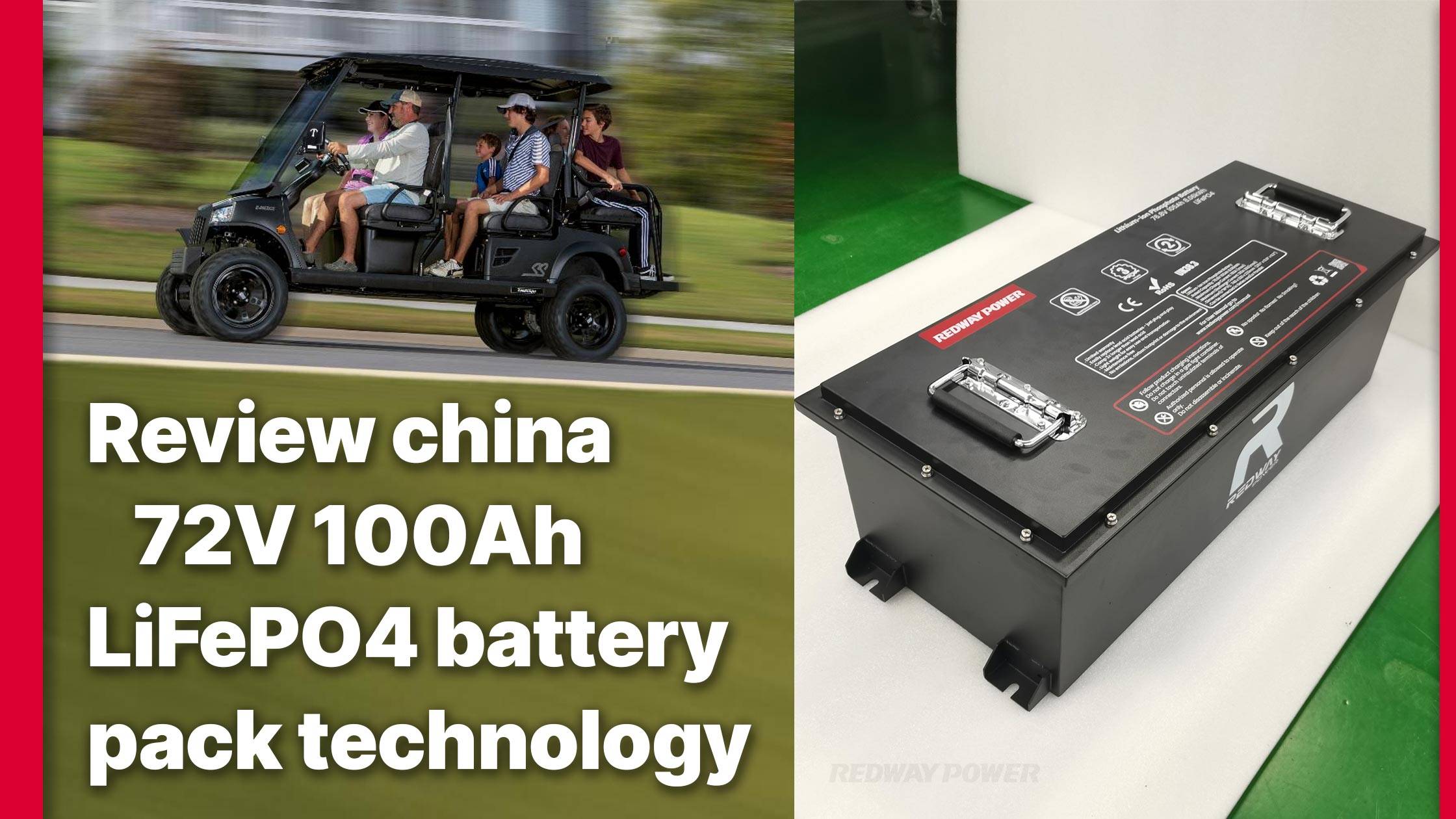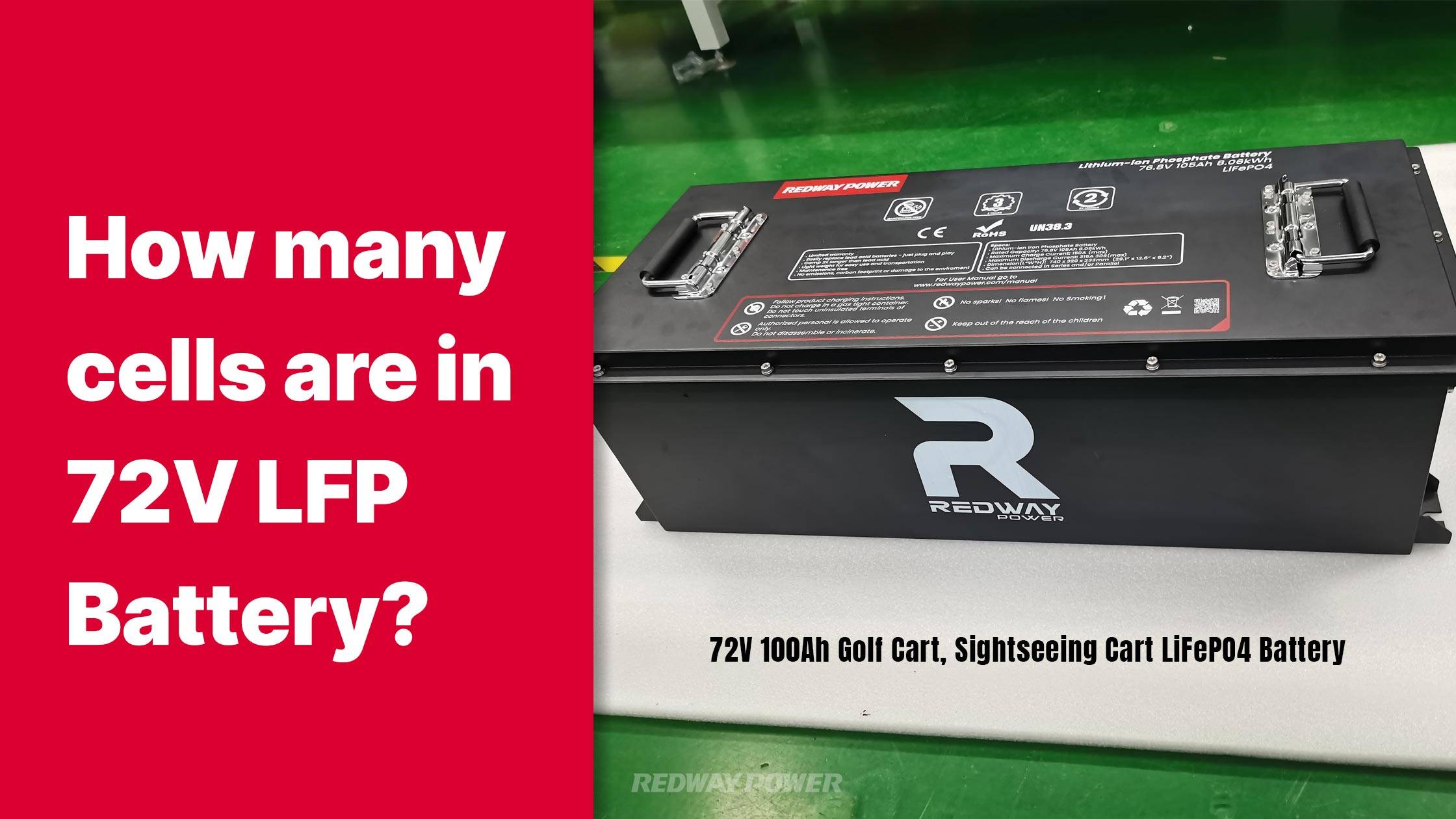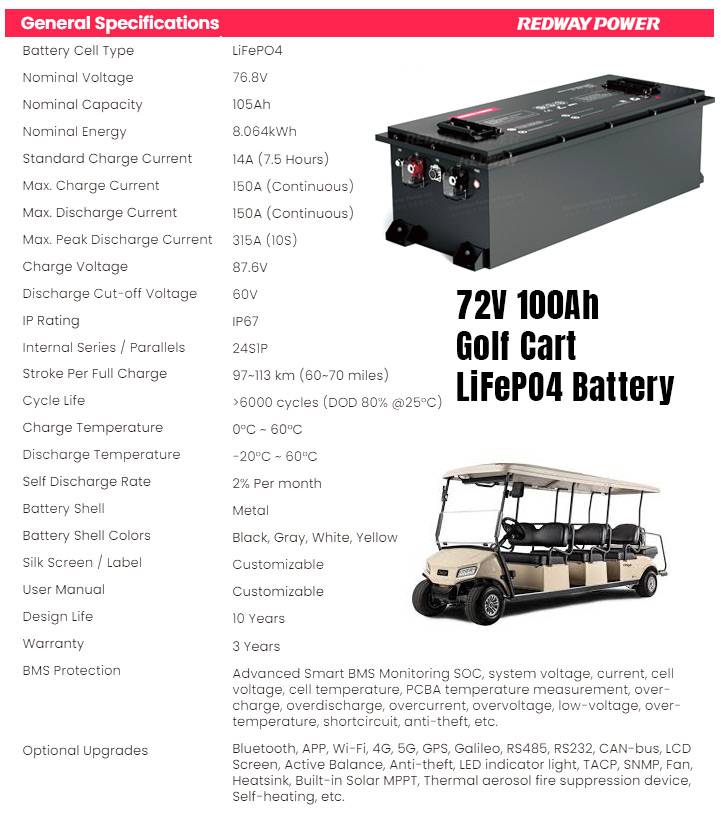- Lithium Golf Cart Battery
- Forklift Lithium Battery
-
48V
- 48V 210Ah
- 48V 300Ah
- 48V 420Ah (949 x 349 x 569 mm)
- 48V 420Ah (950 x 421 x 450 mm)
- 48V 456Ah
- 48V 460Ah (830 x 630 x 590 mm)
- 48V 460Ah (950 x 421 x 450 mm)
- 48V 460Ah (800 x 630 x 600 mm)
- 48V 460Ah (820 x 660 x 470 mm)
- 48V 500Ah
- 48V 560Ah (810 x 630 x 600 mm)
- 48V 560Ah (950 x 592 x 450 mm)
- 48V 600Ah
- 48V 630Ah
-
48V
- 12V Lithium Battery
12V 150Ah Lithium RV Battery
Bluetooth App | BCI Group 31
LiFePO4 Lithium
Discharge Temperature -20°C ~ 65°C
Fast Charger 14.6V 50A
Solar MPPT Charging - 24V Lithium Battery
- 36V Lithium Battery
- 48V Lithium Battery
-
48V LiFePO4 Battery
- 48V 50Ah
- 48V 50Ah (for Golf Carts)
- 48V 60Ah (8D)
- 48V 100Ah (8D)
- 48V 100Ah
- 48V 100Ah (Discharge 100A for Golf Carts)
- 48V 100Ah (Discharge 150A for Golf Carts)
- 48V 100Ah (Discharge 200A for Golf Carts)
- 48V 150Ah (for Golf Carts)
- 48V 160Ah (Discharge 100A for Golf Carts)
- 48V 160Ah (Discharge 160A for Golf Carts)
-
48V LiFePO4 Battery
- 60V Lithium Battery
-
60V LiFePO4 Battery
- 60V 20Ah
- 60V 30Ah
- 60V 50Ah
- 60V 50Ah (Small Size / Side Terminal)
- 60V 100Ah (for Electric Motocycle, Electric Scooter, LSV, AGV)
- 60V 100Ah (for Forklift, AGV, Electric Scooter, Sweeper)
- 60V 150Ah (E-Motocycle / E-Scooter / E-Tricycle / Tour LSV)
- 60V 200Ah (for Forklift, AGV, Electric Scooter, Sweeper)
-
60V LiFePO4 Battery
- 72V~96V Lithium Battery
- Rack-mounted Lithium Battery
- E-Bike Battery
- All-in-One Home-ESS
- Wall-mount Battery ESS
-
Home-ESS Lithium Battery PowerWall
- 24V 100Ah 2.4kWh PW24100-S PowerWall
- 48V 50Ah 2.4kWh PW4850-S PowerWall
- 48V 50Ah 2.56kWh PW5150-S PowerWall
- 48V 100Ah 5.12kWh PW51100-F PowerWall (IP65)
- 48V 100Ah 5.12kWh PW51100-S PowerWall
- 48V 100Ah 5.12kWh PW51100-H PowerWall
- 48V 200Ah 10kWh PW51200-H PowerWall
- 48V 300Ah 15kWh PW51300-H PowerWall
PowerWall 51.2V 100Ah LiFePO4 Lithium Battery
Highly popular in Asia and Eastern Europe.
CE Certification | Home-ESS -
Home-ESS Lithium Battery PowerWall
- Portable Power Stations
What You Need to Know About 72V 100Ah LiFePO4 Battery Pack Technology
On May 13, 2024
Comments Off on What You Need to Know About 72V 100Ah LiFePO4 Battery Pack Technology

The 72V 100Ah LiFePO4 battery pack represents a significant advancement in energy storage technology, offering numerous benefits for various applications. This article delves into the characteristics of this battery pack, its advantages, performance comparisons with other lithium batteries, suitable applications, and how temperature affects its operation.
Table of Contents
ToggleWhat is a 72V 100Ah LiFePO4 battery pack?
A 72V 100Ah LiFePO4 battery pack consists of multiple lithium iron phosphate cells configured to provide a nominal voltage of 72 volts and a capacity of 100 ampere-hours. This configuration allows it to deliver substantial power for extended periods, making it ideal for high-demand applications such as electric vehicles and renewable energy storage systems.Chart: Basic Specifications of a 72V 100Ah LiFePO4 Battery Pack
| Specification | Value |
|---|---|
| Nominal Voltage | 72 V |
| Capacity | 100 Ah |
| Chemistry | Lithium Iron Phosphate (LiFePO4) |
| Cycle Life | Up to 2000–7000 cycles |
What are the advantages of using LiFePO4 technology?
LiFePO4 technology offers several advantages over traditional lithium-ion batteries:
- Safety: LiFePO4 batteries have a lower risk of thermal runaway due to their stable chemistry, making them safer in high-temperature environments.
- Long Cycle Life: These batteries can endure significantly more charge-discharge cycles (2000–7000) compared to other lithium chemistries.
- Environmental Impact: They use non-toxic materials and are recyclable, making them more environmentally friendly.
Chart: Advantages of LiFePO4 Technology
| Advantage | Description |
|---|---|
| Safety | Lower risk of thermal runaway |
| Long Cycle Life | More than double the cycles compared to other lithium types |
| Environmental Impact | Non-toxic materials and recyclable |
How does the performance of LiFePO4 compare to other lithium batteries?
When comparing LiFePO4 with other lithium batteries such as lithium cobalt oxide (LiCoO2) or nickel manganese cobalt (NMC), several key differences emerge:
- Energy Density: While LiCoO2 has a higher energy density, making it suitable for compact devices, LiFePO4 offers lower energy density but compensates with safety and longevity.
- Discharge Rates: LiFePO4 maintains stable discharge rates throughout its cycle life, while other types may experience significant drops in performance over time.
- Temperature Stability: LiFePO4 performs better in extreme temperatures, making it more versatile for various applications.
Chart: Performance Comparison
| Feature | Lithium Iron Phosphate (LiFePO4) | Lithium Cobalt Oxide (LiCoO2) | Nickel Manganese Cobalt (NMC) |
|---|---|---|---|
| Energy Density | Moderate | High | High |
| Discharge Stability | Stable | Decreases over time | Moderate |
| Temperature Stability | Excellent | Moderate | Good |
What applications are best suited for 72V 100Ah LiFePO4 battery packs?
The 72V 100Ah LiFePO4 battery pack is ideal for various applications:
- Electric Vehicles (EVs): Its high power output and long cycle life make it suitable for electric cars and scooters.
- Renewable Energy Storage: It can store energy from solar panels or wind turbines effectively.
- Backup Power Systems: The reliability and safety features make it an excellent choice for backup power solutions in residential or commercial settings.
Chart: Application Suitability
| Application | Description |
|---|---|
| Electric Vehicles | Provides reliable power for EVs |
| Renewable Energy Storage | Efficiently stores energy from renewable sources |
| Backup Power Systems | Reliable power source during outages |
How does temperature impact the performance of LiFePO4 batteries?
Temperature significantly affects the performance and lifespan of LiFePO4 batteries:
- Optimal Operating Range: These batteries perform best within a temperature range of -20°C to +60°C (-4°F to +140°F). Outside this range, performance can degrade.
- Charging Efficiency: Charging at extreme temperatures can lead to inefficiencies or damage; thus, it’s essential to monitor conditions closely.
- Cycle Life Impact: High temperatures can accelerate degradation, while low temperatures may reduce available capacity during discharge.
Chart: Temperature Effects on Performance
| Temperature Range | Effect on Performance |
|---|---|
| -20°C to +60°C | Optimal performance |
| Below -20°C | Reduced capacity |
| Above +60°C | Increased risk of damage |
Industrial News
The market for lithium iron phosphate (LiFePO4) batteries continues to expand as manufacturers focus on enhancing safety features and increasing production capabilities. Recent reports indicate that demand for these batteries is surging in electric vehicle applications due to their long cycle life and stable chemistry. Innovations in fast-charging technologies are also being developed to improve usability in various sectors.
Redway Power Insights
“LiFePO4 technology represents a significant advancement in battery safety and longevity,” states Redway Power’s expert team. “As industries increasingly adopt this technology, understanding its capabilities will be crucial for optimizing energy storage solutions.”
FAQ Section
Q: Can I use a standard charger with a 72V 100Ah LiFePO4 battery?
A: It’s essential to use a charger specifically designed for LiFePO4 batteries to ensure proper charging parameters.Q: How long can I expect my 72V 100Ah LiFePO4 battery pack to last?
A: With proper care, these batteries can last between 2000 and 7000 cycles depending on usage conditions.Q: Are there any safety risks associated with using LiFePO4 batteries?
A: While they are among the safest lithium technologies available, proper handling and charging practices must still be followed to minimize risks.
How many lithium cells are in 72V LiFePO4?

A 72V LiFePO4 battery can consist of 20 to 24 cells, depending on the specific configuration and the voltage of each individual cell. The number of cells determines the overall voltage output of the battery pack.
- Cell Count Range: A 72V LiFePO4 battery can typically consist of 20~24 lifepo4 lithium-ion cells, depending on the specific configuration.
- Voltage Output: The number of cells determines the overall voltage output of the battery pack.
- Battery Configuration: Proper cell connection and balance are crucial for achieving the desired voltage and performance of the 72V LiFePO4 battery pack.
By considering the cell count and proper configuration, you can create a 72V LiFePO4 battery pack with the desired voltage output and optimal performance.
How far can a 72V 50AH lithium battery go?
A 72V 50AH lithium battery can provide a driving range of up to 250km or up to 200km at economy speeds, depending on the vehicle or device using the battery.
- Driving Range Variation: The driving range of a 72V 50AH lithium battery can vary based on factors such as speed, terrain, and the efficiency of the vehicle or device.
- Reported Ranges: Users have reported ranges of up to 250km or up to 200km at economy speeds with a 72V 50AH lithium battery.
- Considerations for Estimation: It is important to consider various factors when estimating the driving range of a 72V 50AH lithium battery, including the specific application and usage conditions.
By understanding the driving range capabilities of a 72V 50AH lithium battery, users can better plan and estimate the distance they can travel on a single charge.
How long does 72V battery last?
The average lifespan of a well-maintained 72V lithium-ion battery is between 2 to 5 years or approximately 500 to 1,000 charging cycles.
- Average Lifespan: A well-maintained 72V lithium-ion battery can last between 2 to 5 years or approximately 500 to 1,000 charging cycles.
- Factors Influencing Lifespan: The actual lifespan can be influenced by factors such as battery type, maintenance, and usage patterns.
- Battery Maintenance and Planning: Proper maintenance and monitoring can help maximize the lifespan of a 72V battery and ensure optimal performance.
By following best practices for battery maintenance and monitoring, you can extend the lifespan of your 72V battery and make informed decisions about battery replacement.
How long does a 72V 50ah battery last?
A 72V 50AH battery can provide a driving range of up to 250km or up to 155 miles on a single charge, depending on the efficiency of the device or vehicle using the battery, as well as other factors such as speed and terrain.
- “Variable Range: The driving range or runtime of a 72V 50AH battery can vary depending on factors such as device or vehicle efficiency, speed, and terrain.
- “Reported Ranges: Users have reported ranges of up to 250km or up to 155 miles on a single charge with a 72V 50AH battery.
- “Considerations for Estimation: It is important to consider various factors when estimating the driving range or runtime of a 72V 50AH battery, including the specific application and usage conditions.
By understanding the factors and considering the reported ranges, users can estimate the potential driving range or runtime of a 72V 50AH battery for their specific device or vehicle.
How fast is 3000W 72V in mph?
A 3000W 72V eBike can reach speeds of up to 45-50 miles per hour (72-80 kilometers per hour), offering a powerful and fast option for high-performance electric bike enthusiasts.
- Speed Range: A 3000W 72V eBike can reach speeds of up to 45-50 miles per hour (72-80 kilometers per hour).
- Powerful Performance: The high wattage output offers a powerful and fast option for electric bike enthusiasts.
- Factors Influencing Speed: The actual speed can vary based on factors such as the weight of the rider, terrain, and wind resistance.
By considering the speed capabilities, electric bike enthusiasts can choose a 3000W 72V eBike that matches their need for high-performance and exhilarating rides.
How fast is 72V in mph?
The speed of a 72V battery can range from 40 to 60 mph or around 31 mph, depending on factors such as the specific model, rider weight, terrain, and riding conditions.
- Variable Speed Range: The speed of a 72V battery can range from 40 to 60 mph or around 31 mph, depending on factors such as the specific setup and circumstances.
- Factors Influencing Speed: The speed capabilities can be influenced by factors such as the specific model, rider weight, terrain, and riding conditions.
- Estimating Velocity: By considering these factors, individuals can estimate the potential speed of an electric vehicle or device powered by a 72V battery.
By understanding the speed capabilities and considering various factors, users can estimate the potential velocity of an electric vehicle or device powered by a 72V battery.
How fast is 5000w 72V?
With a 5000W 72V setup, users have reported top speeds ranging from 100 km/h to 55 mph, offering a high-performance option for fast electric vehicles or devices.
- Variable Top Speed: The top speed of a 5000W 72V setup can range from 100 km/h to 55 mph, depending on factors such as the specific motor, battery, and vehicle or device configuration.
- High-Performance Option: The 5000W 72V setup provides a powerful and fast option for those looking for high-performance electric vehicles or devices.
- Customization and Configuration: The actual top speed can be influenced by various factors, making it important to consider the specific setup and components.
By considering the specific setup and components, users can customize and configure a 5000W 72V setup to achieve their desired top speed and high-performance electric experience.
Can I charge a 72V battery with a 60V charger?
Using a 60V charger to charge a 72V battery is not recommended, as it may not provide the correct voltage output and could potentially damage the batteries. It is important to use a charger that matches the voltage rating of the battery system to ensure safe and proper charging.
- Voltage Compatibility: It is not recommended to use a 60V charger to charge a 72V battery, as it may not provide the correct voltage output.
- Potential Risks: Using an incompatible charger can lead to improper charging and potential damage to the batteries.
- Safety and Efficiency: To ensure safe and proper charging, it is important to use a charger that matches the voltage rating of the battery system.
By using a charger that is compatible with the battery system, users can ensure safe and efficient charging, maximizing the lifespan and performance of their batteries.
What battery do I need for a 72V 2000w motor?
A 72V 20A (minimum) battery is needed for a 72V 2000W e-bike kit to ensure proper power delivery and performance.
- Battery Voltage: To power a 72V 2000W motor, a battery with a voltage rating of 72V is required.
- Amperage Requirement: Users have reported the need for a 72V 20A (minimum) battery to ensure proper power delivery and performance.
- Power Delivery and Performance: Using a battery with the correct voltage and amperage ensures optimal performance and power delivery for a 72V 2000W motor.
By selecting the appropriate battery with the recommended voltage and amperage, users can experience optimal power delivery and performance from their 72V 2000W motor.
What is the maximum voltage for 72V lithium-ion battery?

The maximum voltage for a 72V lithium-ion battery can be around 88.2V or 71.4V, depending on the specific battery cells and their voltage ratings. It’s important to refer to the manufacturer’s specifications for the accurate maximum voltage of a 72V lithium-ion battery.
- Variable Maximum Voltage: The maximum voltage for a 72V lithium-ion battery can be around 88.2V or 71.4V, depending on the specific battery cells and their voltage ratings.
- Manufacturer’s Specifications: It is important to refer to the manufacturer’s specifications to determine the accurate maximum voltage of a 72V lithium-ion battery.
- Safety and Efficiency: Adhering to the recommended maximum voltage ensures safe and efficient usage of a 72V lithium-ion battery.
By considering the manufacturer’s specifications and adhering to the recommended maximum voltage, users can ensure the safe and optimal performance of their 72V lithium-ion battery.
What is the voltage of a 72v battery when fully charged?
The voltage of a fully charged 72V battery can be around 81 volts or 80 volts, depending on the specific battery chemistry and manufacturer specifications. It is important to refer to the manufacturer’s specifications for accurate voltage information.
- Variable Voltage Range: The voltage of a fully charged 72V battery can be around 81 volts or 80 volts, depending on the specific battery chemistry and manufacturer specifications.
- Manufacturer’s Specifications: It is important to refer to the manufacturer’s specifications for accurate voltage information.
- Battery Performance and Usage: By understanding the voltage of a fully charged 72V battery, users can ensure optimal battery performance and usage.
By following the manufacturer’s specifications and understanding the voltage of a fully charged 72V battery, users can maximize the performance and longevity of their batteries.
What is the difference between 48v and 72v battery?
The difference between a 48V and 72V battery lies in the voltage and performance characteristics. While both are valuable parts of an electric vehicle system, the 72V lithium-ion battery provides more power and runtime compared to its 48V counterpart. Additionally, 72V batteries offer superior performance, lasting longer, having higher discharge rates, and being lighter in weight than traditional lead-acid batteries.
- Voltage Difference: The main difference between a 48V and 72V battery is the voltage they provide.
- Power and Runtime: A 72V battery offers more power and runtime compared to a 48V battery in an electric vehicle system.
- Performance Benefits: 72V lithium-ion batteries have superior performance, including longer lifespan, higher discharge rates, and lighter weight compared to traditional lead-acid batteries.
By considering the voltage and performance differences, users can choose the appropriate battery for their electric vehicles, taking advantage of the benefits offered by 72V lithium-ion technology.




















